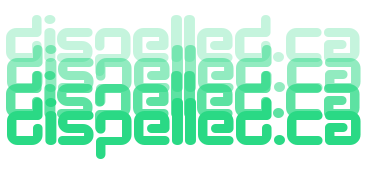Lydian Dominant Scale
The Lydian dominant scale is a seven-note scale that is derived from the melodic minor scale. It is similar to the Lydian mode but with a lowered seventh degree, giving it a unique, dominant sound.
Structure of the Lydian Dominant Scale
The Lydian dominant scale follows the pattern of whole steps (W) and half steps (H) as follows:
W - W - W - H - W - H - W
Example: G Lydian Dominant Scale
The G Lydian dominant scale consists of the following notes:
G - A - B - C# - D - E - F - G
Sound and Character
The Lydian dominant scale has a unique, dominant sound due to the raised fourth and lowered seventh degrees. It is often used in jazz and fusion music to create a sense of tension and resolution.
Applications of the Lydian Dominant Scale
The Lydian dominant scale is used in various musical contexts, including:
- Melody: Creating unique and dominant melodies.
- Harmony: Adding tension and resolution to chord progressions.
- Improvisation: Soloing with a unique, dominant sound.
Chords Derived from the Lydian Dominant Scale
The Lydian dominant scale can be used to derive the following chords:
- Dominant seventh chords (e.g., G7)
- Dominant seventh chords with a raised fourth (e.g., G7♯11)
Songs That Use the Lydian Dominant Scale
Here are some songs that use the Lydian dominant scale:
- "West Side Story" by Leonard Bernstein
- "The Simpsons Theme" by Danny Elfman
- "Freedom Jazz Dance" by Eddie Harris
- "Spain" by Chick Corea
- "Donna Lee" by Charlie Parker
- "Giant Steps" by John Coltrane
Practice Exercises
Here are some practice exercises to help you get familiar with the Lydian dominant scale:
- Play the G Lydian dominant scale on your instrument, ascending and descending.
- Write out the notes of the Lydian dominant scale in different keys and play them on your instrument.
- Practice improvising using the Lydian dominant scale to create unique and dominant sounds.
- Compose a short melody using the Lydian dominant scale and play it on your instrument.
- Analyze a piece of music that uses the Lydian dominant scale and identify the scale's role in the composition.
- Practice playing dominant seventh chords derived from the Lydian dominant scale in different keys.
- Improvise a solo using the Lydian dominant scale over a backing track in a jazz or fusion style.
- Transcribe a solo or melody that uses the Lydian dominant scale and play it on your instrument.
- Create a chord progression using dominant seventh chords and play it on your instrument.
- Experiment with combining the Lydian dominant scale with other scales in your improvisation.
Check out some Bands on Bandcamp.com. Seven Times Refined by Altogether Steve and the Mercenaries, Crazy Fingers (Vancouver 1991), Flying Butt Pliers, and Hammy Ham Hands.
Proudly powered by a Text Editor, an IDE, an SFTP client, some Internet searches, and more recently help from some AI.
2025 dispelled.ca end of file.
